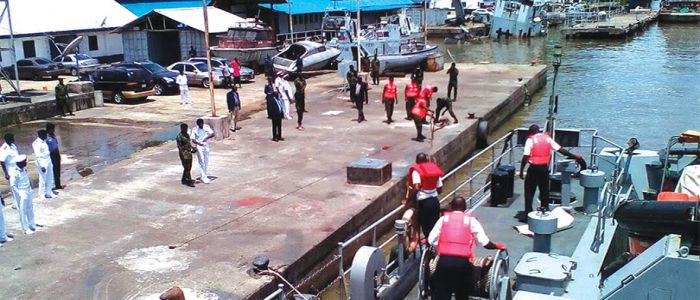
The 6000 Kilometre-long of water remains an important bread basket for West and Central Africa sub regions and a veritable pull for criminal acts.
It is certainly not by coincidence that the waters of the Gulf of Guinea are a special attraction to littoral African States. They are a vast depository of natural resources. From fisheries to hydrocarbons, these resources generate valuable revenue to the 470 million people of the 26 countries grouped in two economic communities. The Gulf of Guinea waters are a serious source of food and employment for these countries and form an important connection to each neighbouring country. The waters of the Gulf of Guinea form an important part of the whole setup of the region including its land component. This explains why the situation on land is usually reflected on the sea. Pirates, it is said, are not born at sea; they are born on land. The past decades have proven that peace and stability challenges in the area have been worsened for instance by crises in the Sahel and North Africa which have gone a long way to exacerbate the already fragile situation in the region.
As an area that offers vast mineral and living marine resources, as well as strategic maritime transport routes for international shipping, the Gulf region has become more important underscoring the need for maritime security. Not only are countries of the gulf interested in the waters, criminals equally find in it serious source of revenue. The Gulf water is important as a stock and flow resource and two examples suffice: Firstly, fishing is a vast industry and source of employment for coastal communities in particular. As a source of protein, the Gulf is a major supplier of food for generally poor societies and thus an important element of food security as far as access and availability are concerned. Secondly, its growing energy stocks located at sea or in the coastal zones represent the bedrock of economic income for several countries.
To realize the potential of this “blue economy,” African states are determined to deal with significant maritime security challenges including piracy, illegal fishing, illegal migration, arms trafficking, narco-t...
Cet article complet est réservé aux abonnés
Déjà abonné ? Identifiez-vous >
Accédez en illimité à Cameroon Tribune Digital à partir de 26250 FCFA
Je M'abonne1 minute suffit pour vous abonner à Cameroon Tribune Digital !
- Votre numéro spécial cameroon-tribune en version numérique
- Des encarts
- Des appels d'offres exclusives
- D'avant-première (accès 24h avant la publication)
- Des éditions consultables sur tous supports (smartphone, tablettes, PC)














Commentaires